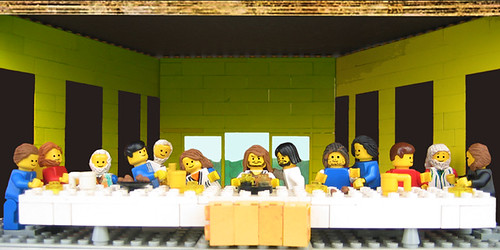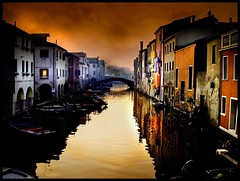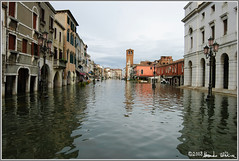.

Before I start, I would like to make two preliminary statements:
- I don't listen to Coldplay very much so I don't know exactly the style of their songs and the themes they usually deal with;
- I love to sing songs in foreign languages and I usually pay more attention to their words than to what they are saying. Moreover, when I listen to them for the first time, I like to guess their meaning from the melody and from the words I can catch immediately.
I know the text is very important, but let's admit it, there are many songs which seem sooo nice and deep and reveal to be soooo stupid when you read their lyric carefully!
Just to give an example: When I was younger, I adored Lemon Tree by Fool's Garden. I literally went mad when I listened to it. The text was quite easy to understand, their pronunciation was very clear (they are German), but let's check the lyric...Maybe I still don't understand its allegories or the metaphor of this lemon tree (if there is a metaphor), who knows, but when I understood it was just a song to relax and have fun... I don't know..Well, I still dance like Hawaiians and I sing when the radio broadcast it but..it will never be the same. Tears ;(
(now I have to write a note. While I was writing these words, I looked for the lyric in order to put it as a link but...guess what?I found an explanation!Ohhhhh, it' sooo sad!It talks about depression..maybe.I don't know if it's the right interpretation, the melody seems too happy to me, anyway..If you listened to it without knowing its real meaning, have a look at it. It is a rediscovery to me ;) Ok, since the last example was wrong I think about songs by Las Ketchup or the man who sang "Chihuahua". But who knows, maybe they are methapors, too...mistery!

Well..maybe I talked too much..let's dwell on
Viva la Vida..I read the text carefully and I the first sensation I got was that it talks about Geroge W. Bush. There are many references which made me think it:
- Since the first line, when he says I used to rule the world..the president of USA actually rules the world, its power is enormous. Bush started his career being acclaimed but soon he revealed not to be up to his task (and this can be related also to the statement there was never an honest word..the first thing that flashed into my mind was that he used the weapons of mass destruction as an excuse to make war on Iraq);
- Be my mirror, my sword and shield can be an incitement to its people. Maybe he wants them to follow his rules and reflect his ideologies (mirror), to fight for his/their opinions (sword), to protect their country (shield) and to spread the American culture, for example when America wanted to teach the ideals of democracy to the Middle East (be my missionaries in a foreign field);
- People couldn't believe what I'd become, because he disappointed Americans'expectations. For this reason, he can say revolutionaries wait for my head on a silver plate (they can be American people or some leaders of Middle East countries);
.
In conclusion I don't know if it's the right interpretation, anyway I think the text dwells upon power and its abuse, which can be perpetrated by religious institutions or politicians. I don't believe it talks about Satan or love because he makes references to history (Roman Cavalry), religion (Jerusalem bells, missionaries), politics (revolutionaries), which make me think about more prosaic themes.
.
 Well..maybe I talked too much..let's dwell on Viva la Vida..I read the text carefully and I the first sensation I got was that it talks about Geroge W. Bush. There are many references which made me think it:
Well..maybe I talked too much..let's dwell on Viva la Vida..I read the text carefully and I the first sensation I got was that it talks about Geroge W. Bush. There are many references which made me think it:














